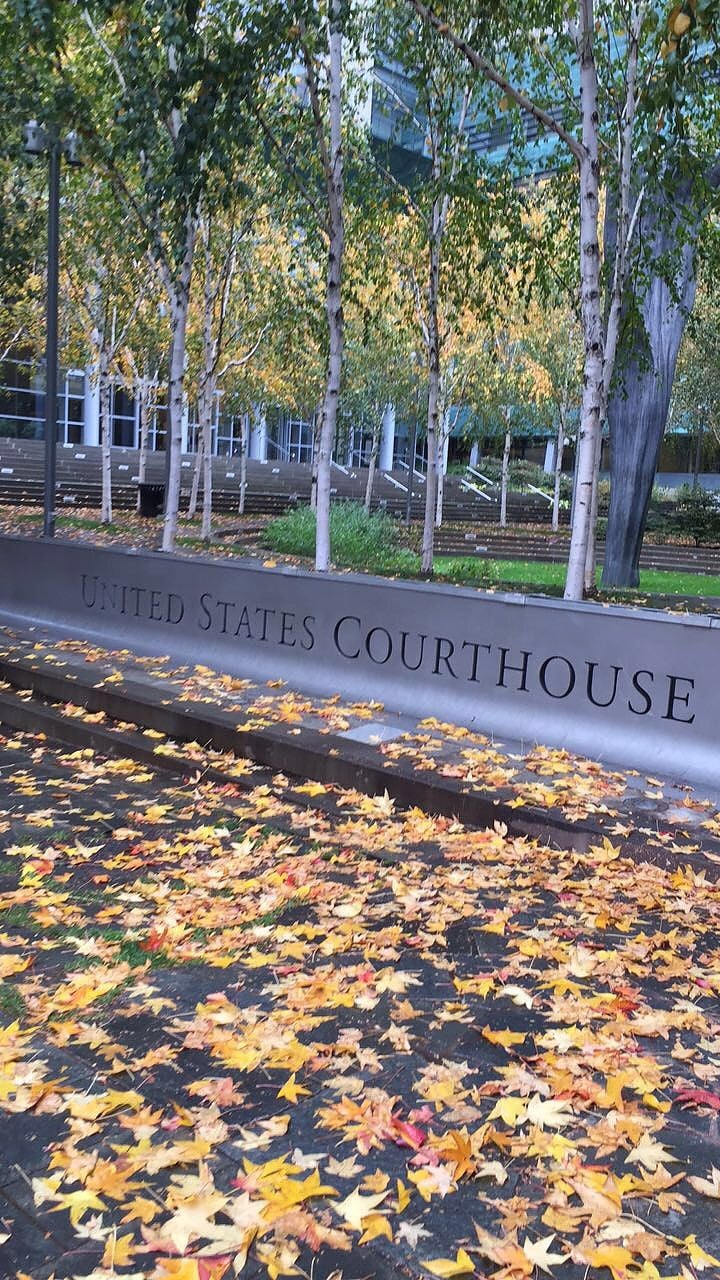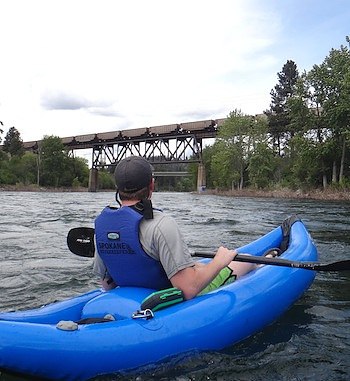
A coalition of environmental organizations and BNSF Railway (BNSF) have reached an agreement in principle that will ensure that BNSF starts to clean up and prevent pollution from their coal trains.
The agreement, which is expected to be finalized as a court order in the next 60 days, will put on hold the ongoing trial until a final agreement is reached, and includes several requirements that will protect the health of Washington’s waterways:
- A two-year study, funded by BNSF, into methods for covering coal trains.
- $1 million for conservation or restoration projects in Washington.
- Clean up and removal of coal and/or pet coke at specific areas near water bodies most affected by BNSF coal trains.
Plaintiffs put on testimony over the course of the weeklong trial that included multiple eyewitnesses to coal pollution and expert testimony that a million or more coal particles per second come off of each rail car. A coalition of environmental groups — Sierra Club, Puget Soundkeeper, Columbia Riverkeeper, Spokane Riverkeeper, RE Sources for Sustainable Communities / North Sound Baykeeper, Natural Resources Defense Council (NRDC), and Friends of the Columbia Gorge — sued BNSF in 2013 under the federal Clean Water Act.
Environmental organizations praised the agreement in principle as a step toward protecting the health of Puget Sound, the Columbia River and other Washington state waterways. More than two years of work investigating and documenting water pollution from BNSF trains laid the foundation for the agreement reached today. Here is some of the history that came to light during the course of the trial.
Last Wednesday I was called to testify in a trial for a federal Clean Water Act case against BNSF brought forth by several Waterkeepers and other environmental groups in Washington. At issue was the discharge of coal and coal dust from BNSF trains into waterbodies in Washington state. My role as a witness, therefore my reason for being called to testify stemmed from my time spent as Spokane Riverkeeper where I personally found coal in the Spokane River and a tributary of the Spokane River. I also set up and facilitated a volunteer coal collection program as Spokane Riverkeeper.
 Several times in the spring of 2013 I visited locations on the Spokane River and a tributary of the Spokane River and found toxic coal in the river and/or on the shoreline in the ordinary high water mark. I wasn’t the only one and this wasn’t the only location in Washington state. Columbia Riverkeeper, Puget Soundkeeper, North Sound Baykeeper, Friends of the Columbia Gorge, NRDC and Sierra Club personally found or oversaw coal collection in numerous rivers, streams and bays through Washington state. This discovery of coal originally confirmed our beliefs and very public messaging that coal being transported from coal mines in Montana and Wyoming to export facilities on the west coast is polluting waterways and communities throughout the northwest, and any increase in such traffic (specifically in light of proposals for several new exporting facilities) would only increase said pollution. This is what prompted the original lawsuit filing in 2013.
Several times in the spring of 2013 I visited locations on the Spokane River and a tributary of the Spokane River and found toxic coal in the river and/or on the shoreline in the ordinary high water mark. I wasn’t the only one and this wasn’t the only location in Washington state. Columbia Riverkeeper, Puget Soundkeeper, North Sound Baykeeper, Friends of the Columbia Gorge, NRDC and Sierra Club personally found or oversaw coal collection in numerous rivers, streams and bays through Washington state. This discovery of coal originally confirmed our beliefs and very public messaging that coal being transported from coal mines in Montana and Wyoming to export facilities on the west coast is polluting waterways and communities throughout the northwest, and any increase in such traffic (specifically in light of proposals for several new exporting facilities) would only increase said pollution. This is what prompted the original lawsuit filing in 2013.
Last month, U.S. District Court Judge John Coughenour agreed with the plaintiff’s argument that BNSF’s trains are “point sources” of coal pollution under the federal Clean Water Act. Which brought us to trial last week where several of us testified in Federal District Court in Seattle that we found toxic coal in multiple Washington waterways. It was an honor to add my testimony to a case that is not only near and dear to my heart as the former Spokane Riverkeeper and former resident of Washington state, but more so for what it could mean to other communities and waterways with similar coal pollution issues from uncovered coal trains.
Coal pollutes the environment and erodes communities at every stage of its life. We can see coal pollution, we can feel coal pollution; and with so much uncertainty about the future of our environment and environmental policy and law, this settlement agreement secures a victory that holds a polluting railway accountable for decades of water pollution. This gives us some amount of certainty, however small it may be, on swimmable and fishable waterways.
Read more about the settlement agreement and see what our Waterkeepers in Washington have to say here.